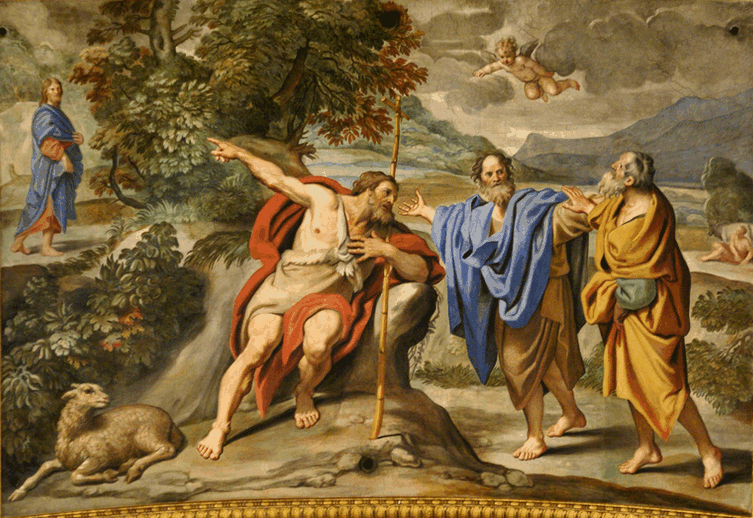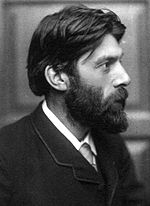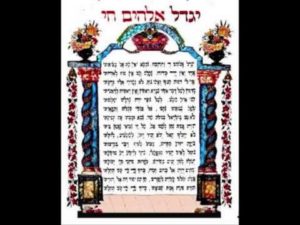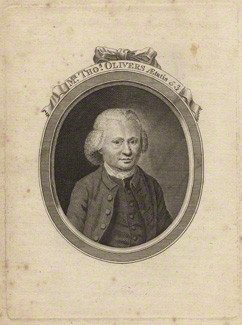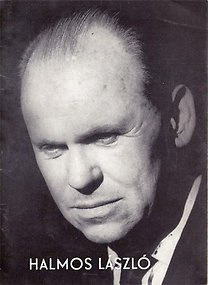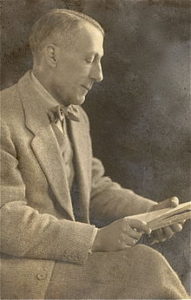Behold the Lamb of God!
Mount Calvary Church
Eutaw Street and Madison Avenue
Baltimore, Maryland
A Parish of the Roman Catholic Personal Ordinariate of St. Peter
Anglican Use
Rev. Albert Scharbach, Pastor
Epiphany II
8:00 AM Said Mass
10:00 AM Sung Mass
Prelude
Puer nobis, J. P. Sweelinck
Hymns
O splendor of God’s glory bright
Father, we thank Thee who hast planted
The God of Abraham praise
Anthems
Jubilate Deo, Laslo Halmos
O taste and see, Ralph Vaughan Williams
Postlude
Trumpet Voluntary no. 5, op, 7, John Stanley
______________________________________________
Prelude
Puer nobis, Jan Pieterzoon Sweelinck (1562-1721)
Here it is played with a very delicate touch by Diederik Blankesteijn.
_____________________________________________
Hymns
O splendor of God’s glory bright is a translation by Robert Bridges, poet laureate of England, of St. Ambrose’s morning hymn Splendor paternæ gloriæ.
O Splendor of God’s glory bright,
O Thou that bringest light from light,
O Light of Light, light’s living spring,
O Day, all days illumining.O thou true Sun, on us Thy glance,
Let fall in royal radiance,
the Spirit’s sanctifying beam
upon our earthly senses stream.The Father, too, our prayers implore,
Father of glory evermore;
the Father of all grace and might,
to banish sin from our delight.On Christ, the true bread, let us feed;
Let Him to us be drink indeed;
And let us taste with joyfulness
The Holy Spirit’s plenteousness.All laud to God the Father be;
All praise, eternal Son, to thee;
All glory, as is ever meet,
To God the holy Paraclete.
Here is the Mormon Tabernacle Choir doing a cheerful version.
Here is the English sung to a Gregorian melody.
Splendor paternæ gloriæ,
De luce lucem proferens,
Lux lucis et fons luminis,
Diem dies illuminansVerusque sol, illabere
Micans nitore perpeti
Iubarque sancti spiritus
Infunde nostris sensibus.Votis vocemus et patrem,
Patrem perennis gloriæ,
Patrem potentis gratiæ
Culpam releget lubricam.Informet actus strenuos,
Dentem retundat invidi,
Casus secundet asperos,
Donet gerendi gratiam.Mentem gubernet et regat
Casto, fideli corpore,
Fides calore ferveat,
Fraudis venena nesciat.Christusque noster sit cibus,
Potusque noster sit fides,
Læti bibamus sobriam
Ebrietatem spiritus.Lætus dies hic transeat,
Pudor sit ut diluculum,
Fides velut meridies,
Crepusculum mens nesciat.Aurora cursus provehat,
Aurora totus prodeat,
In patre totus filius
Et totus in verbo pater.
Here is the Latin with Gregorian chant.
Robert Bridges (1844-1930) was poet laureate of England from 1913 until his death. At Oxford he was a friend of Gerald Manley Hopkins and arranged for the publication of Hopkins’ poetry posthumously.
Bridges wrote and also translated historic hymns, and many of these were included in Songs of Syon (1904) and the later English Hymnal (1906). Several of Bridges’ hymns and translations are still in use today, such as “O Gladsome Light” (Phos Hilaron), “O Sacred Head, sore wounded” (Paulus Gerhardt, 1656), and
“When morning gilds the skies” (stanza 3; Katholisches Gesangbuch, 1744)
PUER NOBIS NASCITUR is a melody from a fifteenth-century manuscript from Trier. However, the tune probably dates from an earlier time and may even have folk roots. PUER NOBIS was altered in Spangenberg’s Christliches Gesangbuchlein (1568), in Petri’s famous Piae Cantiones (1582), and again in Praetorius’s Musae Sioniae (Part VI, 1609), which is the basis for the triple-meter version.
_______________________________________
Father, we thank Thee who hast planted is a paraphrase by the Episcopal clergyman Francis Bland Tucker (1895—1984) of the Didache, The Teaching of the Twelve Apostles, one of the earliest documents of the church.
Stanza 1 corresponds to 10: 2 of the Didache, a post-communion prayer: ‘We give Thee thanks, Holy Father, for Thy holy name, which Thou hast made to tabernacle in our hearts, and for the knowledge and faith and immortality, which Thou hast made known unto us through Thy Son Jesus’ (translation by Joseph Barber Lightfoot, The Apostolic Fathers, 1891). Stanza 2 is from 10: 3: ‘Thou, Almighty Master, didst create all things for Thy name’s sake, and didst give food and drink unto men for enjoyment, that they might render thanks to Thee; but didst bestow upon us spiritual food and drink and eternal life through Thy Son.’ Stanza 3 is from 10: 5: ‘Remember, Lord, Thy Church to deliver it from all evil and to perfect it in Thy love…’. Stanza 4 is from 9: 4: ‘As this broken bread was scattered upon the mountains and being gathered together became one, so may Thy Church be gathered together from the ends of the earth into Thy kingdom.’
Here at St. John’s, Detroit, before a Tigers game.
Father, we thank Thee who hast planted
Thy holy name within our hearts.
Knowledge and faith and life immortal
Jesus, Thy Son, to us imparts.
Thou, Lord, didst make all for Thy pleasure,
Didst give us food for all our days,
Giving in Christ the Bread eternal;
Thine is the pow’r, be Thine the praise.Watch o’er Thy Church, O Lord, in mercy,
Save it from evil, guard it still,
Perfect it in Thy love, unite it,
Cleansed and conformed unto Thy will.
As grain, once scattered on the hillsides,
Was in this broken bread made one,
So from all lands Thy Church be gather’d
Into Thy kingdom by Thy Son.
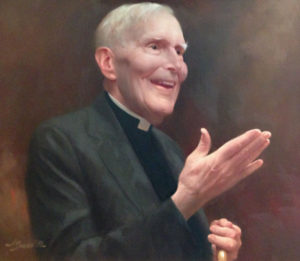
Francis Bland Tucker (1885-1984) was an important figure in hymnody. He was educated at the University of Virginia and the Virginia Theological Seminary. Beginning in 1945, he was Rector of Christ Church in Savannah, Georgia. Tucker served on the two commissions, forty-two years apart, that revised hymnals of the Episcopal Church. He worked on the 1940 Hymnal and the 1982 Hymnal which includes 17 of Tucker’s contributions. Among these are the texts, Oh, Gracious Light (Hymns 25-26), Father, We Thank Thee Who Hast Planted (Hymns 302-303), and his original text, Our Father, by Whose Name (Hymn 587). Only John Mason Neale is credited with more items in the 1982 Hymnal. Tucker was also a theological adviser to the commission that produced the 1979 Book of Common Prayer.
A collateral descendant of George Washington, Tucker’s parents were Beverley Dandridge Tucker, Episcopal Bishop of Southern Virginia, and Anna Maria Washington who was one of the last children to be born at Mount Vernon. Francis Bland is the brother of Henry St. George Tucker (1874–1959), 19th Presiding Bishop of the Episcopal Church and descendant of St. George Tucker (1752–1827), lawyer, legal scholar, state and federal judge for whom the St. George Tucker House in Colonial Williamsburg is named.
________________________________
One night in London, Thomas Olivers (1725—1799), a follower of John Wesley, was attracted to a service in a Jewish synagogue, where he heard a great singer, Myer Leoni, sing an ancient Hebrew text in solemn, plaintive mode. Olivers wrote a hymn to that tune: The God of Abraham Praise, which is a paraphrase of the ancient Hebrew Yigdal, or doxology. In the 12th century, Jewish scholar Moses Maimonides codified the 13 articles of the Jewish Creed. These articles of the Jewish faith were later shaped into the Yigdal around 1400 by Daniel ben Judah, a judge in Rome.
Her is the King’s College choir.
Here is a wonderful Sephardic Yigdal. Here is a modern arrangement of the Yigdal.
Here are the original verses. Note that in almost all hymnals the specifically Christian references have been removed, often to make the hymn suitable for interfaith gatherings.
The God of Abraham praise, who reigns enthroned above;
Ancient of everlasting days, and God of Love;
Jehovah, great I AM! by earth and Heav’n confessed;
I bow and bless the sacred Name forever blessed.The God of Abraham praise, at Whose supreme command
From earth I rise—and seek the joys at His right hand;
I all on earth forsake, its wisdom, fame, and power;
And Him my only Portion make, my Shield and Tower.The God of Abraham praise, whose all sufficient grace
Shall guide me all my happy days, in all my ways.
He calls a worm His friend, He calls Himself my God!
And He shall save me to the end, thro’ Jesus’ blood.He by Himself has sworn; I on His oath depend,
I shall, on eagle wings upborne, to Heav’n ascend.
I shall behold His face; I shall His power adore,
And sing the wonders of His grace forevermore.Tho’ nature’s strength decay, and earth and hell withstand,
To Canaan’s bounds I urge my way, at His command.
The wat’ry deep I pass, with Jesus in my view;
And thro’ the howling wilderness my way pursue.The goodly land I see, with peace and plenty bless’d;
A land of sacred liberty, and endless rest.
There milk and honey flow, and oil and wine abound,
And trees of life forever grow with mercy crowned.There dwells the Lord our King, the Lord our righteousness,
Triumphant o’er the world and sin, the Prince of peace;
On Sion’s sacred height His kingdom still maintains,
And glorious with His saints in light forever reigns.He keeps His own secure, He guards them by His side,
Arrays in garments, white and pure, His spotless bride:
With streams of sacred bliss, with groves of living joys—
With all the fruits of Paradise, He still supplies.Before the great Three-One they all exulting stand;
And tell the wonders He hath done, through all their land:
The list’ning spheres attend, and swell the growing fame;
And sing, in songs which never end, the wondrous Name.The God Who reigns on high the great archangels sing,
And “Holy, holy, holy!” cry, “Almighty King!
Who was, and is, the same, and evermore shall be:
Jehovah—Father—great I AM, we worship Thee!”Before the Savior’s face the ransomed nations bow;
O’erwhelmed at His almighty grace, forever new:
He shows His prints of love—they kindle to a flame!
And sound thro’ all the worlds above the slaughtered Lamb.The whole triumphant host give thanks to God on high;
“Hail, Father, Son, and Holy Ghost,” they ever cry.
Hail, Abraham’s God, and mine! (I join the heav’nly lays,)
All might and majesty are Thine, and endless praise.
Here is the 1940 Hymnal version by an English choir.
Here is the Yigdal:
- Exalted be the Living God and praised, He exists – unbounded by time is His existence;
- He is One – and there is no unity like His Oneness – Inscrutable and infinite is His Oneness;
- He has no semblance of a body nor is He corporeal – nor has His holiness any comparison;
- He preceded every being that was created – the First, and nothing precedes His precedence;
- Behold! He is Master of the universe – Every creature demonstrates His greatness and His sovereignty;
- He granted His flow of prophecy – to His treasured, splendid people;
- In Israel, none like Moses arose again – a prophet who perceived His vision clearly;
- God gave His people a Torah of truth – by means of His prophet, the most trusted of His household;
- God will never amend nor exchange His law – for any other one, for all eternity;
- He scrutinizes and knows our hiddenmost secrets – He perceives a matter’s outcome at its inception;
- He recompenses man with kindness according to his deed – He places evil on the wicked according to his wickedness;
- By the End of Days He will send our Messiah – to redeem those longing for His final salvation;
- God will revive the dead in His abundant kindness – Blessed forever is His praised Name.
Note that the last verse expresses belief in the resurrection of the dead, which is an article of Jewish belief, as is clear from Gospels.
Thomas Olivers
Thomas Olivers was born in 1725. Both his father and his mother died when he was four years old. He grew up to be an apprentice shoemaker and he became a profligate and reckless young man. After his involvement in a scandal which forced him to leave his home, Olivers travelled to Bristol where he heard George Whitfield preach on the text “is not this a brand plucked from the fire?” (Zechariah 3:2). Olivers was converted and expressed a desire to follow Whitfield; however one of Whitfield’s preachers discouraged him and instead he joined the Methodist society and met one of the founders of Methodism, John Wesley.
After joining Wesley as a preacher, Olivers was initially stationed to preach in Cornwall. He was later stationed to preach all around Great Britain and Ireland because of his fearless preaching style. He also had good relations with Great Britain’s Jewish community, attending Jewish synagogues and became friends with Rabbi Myer Lyon. In 1775, Wesley appointed Olivers to co-write the Arminian Magazine with him. Olivers often exercised control over the content of the magazine. Due to a lack of formal education, Olivers’ editions of the magazine contained several printing errors, which annoyed Wesley but he persevered with Olivers whom he counted as a friend and attached a list of errors at the back of the yearly annual in 1778. However following an “astounding number of errata”, Wesley declared in a letter that “I cannot, dare not, will not suffer Thomas Olivers to murder the Arminian Magazine any longer. The errata are intolerable and innumerable. They shall be so no more” and removed Olivers from his position in 1789. Despite this, Olivers and Wesley remained good friends, often viewed as a father-son relationship. When Olivers died in March 1799, he was buried in Wesley’s grave in London.
Anthems
Jubilate Deo, Laslo Halmos
Jubilate Deo universa terra, psalmum dicite nomini eius. Venite et audite, et narrabo vobis omnis qui timetis Deum quanta fecit Dominus animae meae. Alleluia.
O be joyful in God, all ye lands: sing praises unto the honour of his Name. O come hither, and hearken, all ye that fear God: and I will tell you what he hath done for my soul. Alleluia.
László Halmos (1909- 1997) was a Hungarian composer, choir director and violinist.
He wrote choral works, songs, chamber music, oratorios, cantatas, masses, as well as works for orchestra and for the organ, totaling several hundred works. He was choir director of Gyór Cathedral and also held the position of professor at the Theological College and the State Conservatory. As a violinist, he was one of the early members of The New Hungarian Quartet.
Here the anthem by mixed chamber choir; here at the Christ the King mass at St. Peter’s in Rome; here by a male choir at Đakova cathedral in Croatia.
Halmos was born a subject of Franz Josef in the Austro-Hungarian Empire. He lived through the Red Terror of Béla Kun, the regency of Admiral Horthy, the takeover by the Germans, and Communist era, including the Revolution of 1956. He lived to see a free Hungary. America’s political difficulties should be kept in perspective.
___________________________________
O taste and see, Ralph Vaughan Williams
O taste and see how gracious the Lord is; blest is the man that trusteth in Him.
Here is the score and the Cambridge Singers
Common
An Anglican Folk Mass, Martin Shaw
Here is the Creed as sung at Chichester Cathedral.
Martin Edward Fallas Shaw (1875 – 1958) was an English composer, conductor and (in his early life) theatre producer. His over 300 published works include songs, hymns, carols, oratorios, several instrumental works, a congregational mass setting (the Anglican Folk Mass) and four operas including a ballad opera.
He was the son of the Bohemian and eccentric James Shaw, composer of church music and organist of Hampstead Parish Church. He was the elder brother of the composer and influential educator Geoffrey Shaw and the actor Julius Shaw, whose career was cut short by the First World War – he was killed in March 1918. He studied under Stanford at the Royal College of Music, together with a generation of composers that included Holst, Vaughan Williams and John Ireland. He then embarked upon a career as a theatrical producer, composer and conductor, the early years of which he described as “a long period of starving along”. However, he began his career as an organist, serving at Emmanuel Church, West Hampstead, from 1895 to 1903.
Working with Percy Dearmer, Martin was music editor of The English Carol Book (1913, 1919) and, with Ralph Vaughan Williams, of Songs of Praise (1925, 1931) and The Oxford Book of Carols (1928). His tune Little Cornardis sung to Hills of the North Rejoice, and Marching is sung to Through the Night of Doubt and Sorrow. While doing research for the English Hymnal (1906) in the British Library, he came upon the traditional Gaelic hymn-tune Bunessan in L. McBean’s Songs and Hymns of the Gael, published in 1900. However, the tune was not included in the English Hymnal. It was used instead in the second edition of Songs of Praise (1931), set to the poem Morning Has Broken, which Martin Shaw commissioned specially from his old friend Eleanor Farjeon. This tune and words became a No. 1 hit for Cat Stevens in 1972. Martin Shaw also noted down the Czech carol Rocking and included it in The Oxford Book of Carols.
Postlude
Trumpet Voluntary no. 5, op, 7, John Stanley
Here it is on organ and trumpet.
